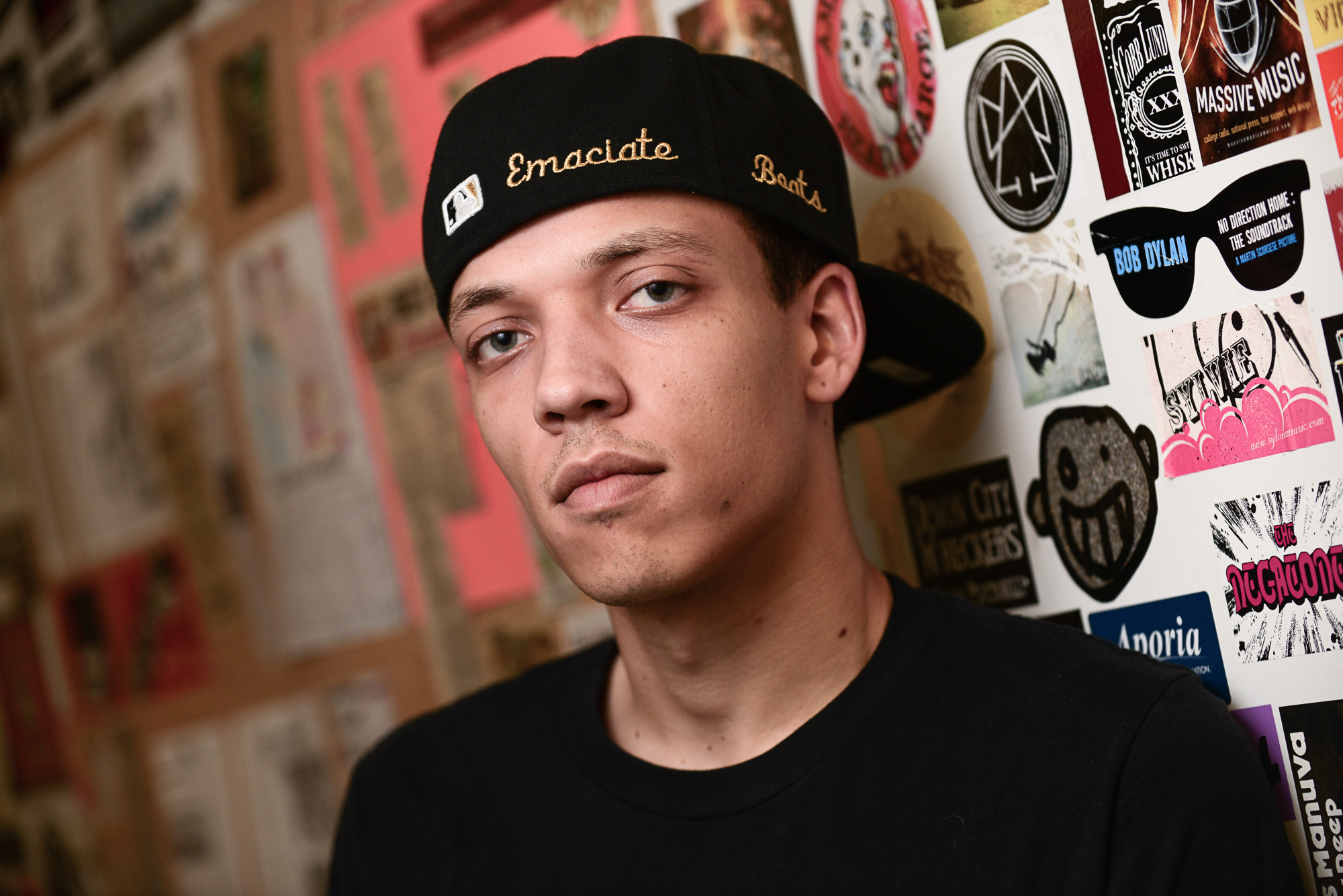Loud, aggressive and energetic—these are the three pillars of punk rock and Toronto’s The Flatliners have mastered these. Placing a particular importance on their live shows, this hard-hitting four-piece has toured extensively over the past decade. With the recent release of the band’s fourth studio album, Dead Language, these vets prove that there certainly is no rest for the wicked.
While many bands routinely see changes in their line-up, The Flatliners have remained undivided since their formation, a feature that has allowed them to become a tightly knit musical unit. Chris Cresswell, vocalist and guitarist for the group, recently spoke to The Concordian and discussed the band’s journey from the suburbs to center stage.
The Flatliners’ story is that of a group of tight knit, lifelong friends coming together to play the music that they love. These four musicians, so close that they share multiple tattoos including a beer can and Autobahn sign, rose through the ranks and ultimately came to share the stage with the very bands that inspired them in the first place. The band officially formed in 2002, but as Cresswell pointed out, the seeds of the group were sown years earlier. Cresswell’s mother introduced him to Scott Brigham, the band’s future lead guitarist, at a young age.
“This is Scott, he’s your new friend,” Cresswell recollected.
The duo met Jon Darbey, the group’s bassist, while in second grade and later percussionist Paul Ramirez. Cresswell grew up listening to a variety of music including Weezer, The Foo Fighters and Oasis, but he attributes his punk education to his older brother.
“He got me into grunge. Nirvana, Pearl Jam and punk like NOFX and No Use For a Name. One of the first bands I got into was Rancid,” the frontman recalled, “I got my mom to drive me into town to get [Rancid’s 1995 platinum album]… And Out Come The Wolves. I got it on cassette, I still have it somewhere.”
Darbey, previously a guitarist, was forced to play bass because as Cresswell stated “we already had two of them.” With the release of the band’s second album, The Great Awake in 2007, The Flatliners joined their heroes Rancid, No Use For a Name and NOFX as label mates, at Fat Wreck Chords.
“ We’re proud to have been able to tour with some of the bands that we have,” he said.
Their most recent album’s name is a nod to both the fact that the band “released [their] first album in 2003 on CD and the format was already pretty dead,” as well as a connection to the lyrical themes of the album.
“A lot of songs on the album are about screwing up and starting over,” Cresswell stated.“Its like Latin, it’s a dead language but a lot of other languages use it as a base. They used the parts of it that worked and they made the parts that didn’t work, better.”
This long awaited album, the follow-up to the group’s highest charting album to date, 2010’s Cavalcade, was recorded in two large sessions.
“We recorded all the instruments for the album at the same time live in studio, with no click track, and did the vocals last,” said Cresswell. “We felt that we tour and play together enough to do that, we’re more of a live band than a studio band anyways.”
The band also recently contributed to The Songs of Tony Sly: A Tribute. This compilation album was released Oct.29 in dedication to the former frontman of No Use For a Name, Tony Sly, who passed away unexpectedly in August of 2012.
The album has songs by a variety of punk stars such as NOFX, Bad Religion and Rise Against, among others, covering the songs of Tony Sly with profits going to the Tony Sly Memorial fund.
“We’ve been at Fat Wreck Chords for a long time so when Fat Mike (owner of Fat Wreck Chords and NOFX frontman) asked us to play we wanted to do it” said Cresswell. “We narrowed it down to “Fireball” because it was the one song we all agreed to.”
Cresswell added that while it was a terrible event, he was glad to have been a part of the album and was happy that the funds were going to a good cause.
The Flatliners will be playing at Cabaret Underworld on Dec.21.
